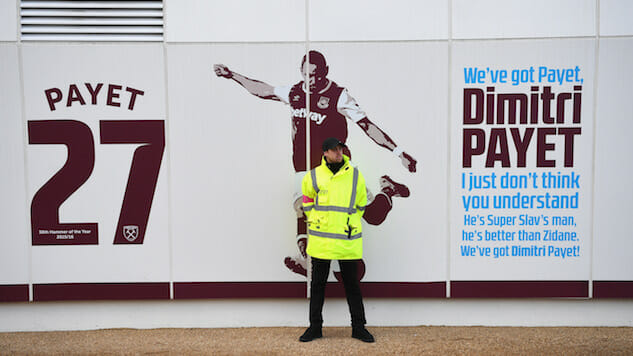Why You Can’t Cry for Joël Matip While Cursing Dimitri Payet
Photo by Shaun Botterill/Getty
On the surface, their cases couldn’t be farther apart.
On the one hand we have Dimitri Payet, the spoiled 29 year old French diva whose playing “strike” at West Ham appears to have failed to convince his club to sell him to Marseille for a reported price of £20 million.
On the other we have Joël Matip, the beleaguered 25 year old ex-Cameroonian international whose club, Liverpool, are desperately seeking clarification from FIFA on whether his call up for the Africa Cup of Nations means he is ineligible to play for his club, despite his retirement from international football in 2015.
Matip and Payet, hero and villain. However, these narratives share a common thread—our moral view of these players is directly tied to their ability to play for their respective clubs. Any supposed sympathy or hostility for their situation is only relative to whether they can help West Ham or Liverpool win. It’s in bad faith.
That’s because both these cases underline the restrictions on movement of workers in professional football (and European sport in general). Yes, it is inescapable that total freedom of movement for players would radically alter football, possibly for the worse. But that does not mean the present arrangement is ideal or fair.
-

-

-

-

-

-

-

-

-

-

-

-

-

-

-

-

-

-

-

-

-

-

-

-

-

-

-

-

-

-

-

-

-

-

-

-

-

-

-

-








































